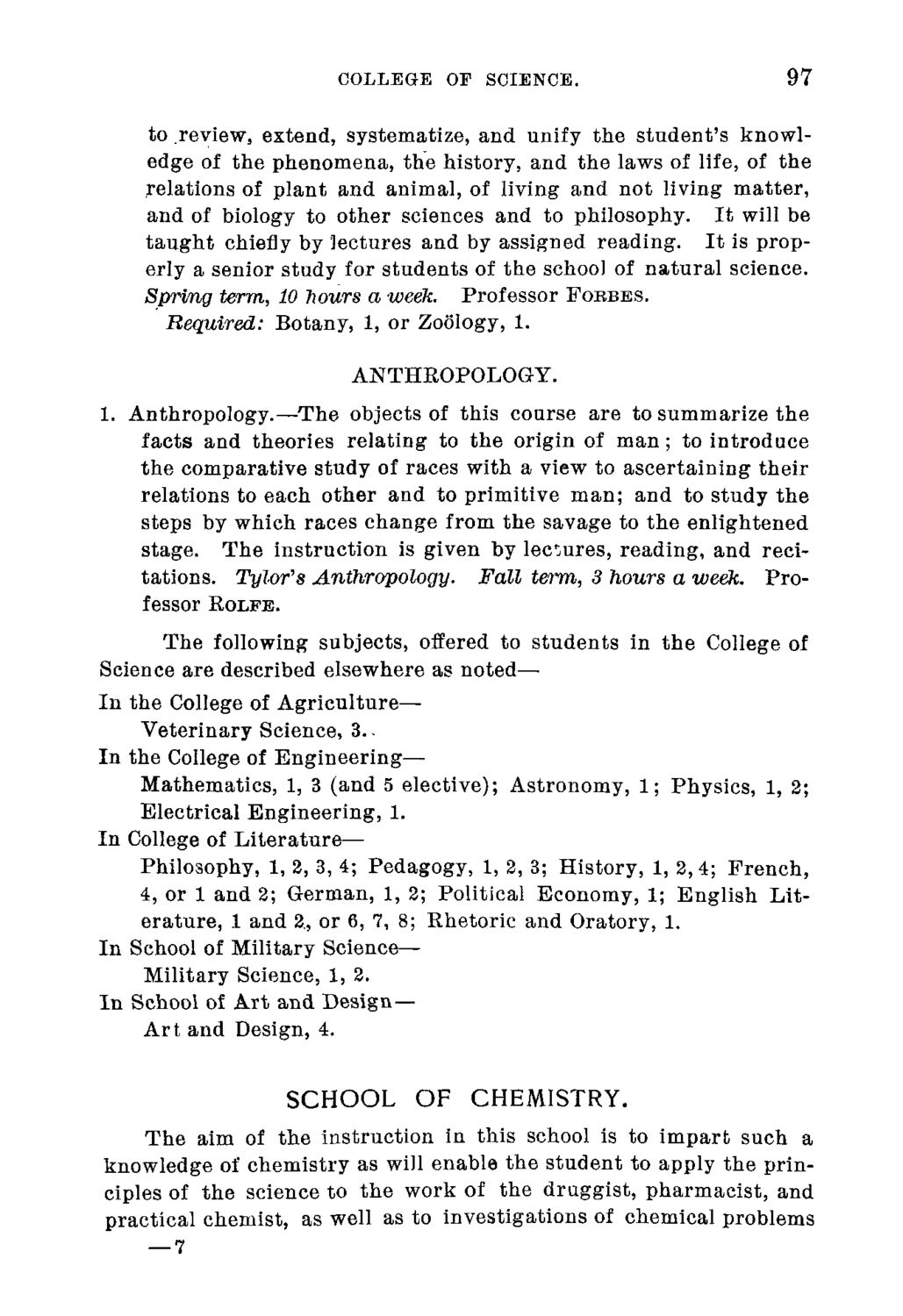| |
| |
Caption: Course Catalog - 1891-1892
This is a reduced-resolution page image for fast online browsing.

EXTRACTED TEXT FROM PAGE:
COLLEGE OF SCIENCE. 97 to .review, extend, systematize, and unify the student's knowledge of the phenomena, the history, and the laws of life, of the relations of plant and animal, of living and not living matter, and of biology to other sciences and to philosophy. It will be taught chiefly by lectures and by assigned reading. It is properly a senior study for students of the school of natural science. Spring term, 10 hours a week. Professor FOBBES. Required: Botany, 1, or Zoology, 1. ANTHROPOLOGY. 1. Anthropology.—The objects of this course are to summarize the facts and theories relating to the origin of man; to introduce the comparative study of races with a view to ascertaining their relations to each other and to primitive man; and to study the steps by which races change from the savage to the enlightened stage. The instruction is given by lectures, reading, and recitations. Tyl-or's Anthropology. Fall term, 3 hours a week. Professor ROLFE. The following subjects, offered to students in the College of Science are described elsewhere as noted— In the College of Agriculture— Veterinary Science, 3.. In the College of Engineering— Mathematics, 1, 3 (and 5 elective); Astronomy, 1; Physics, 1, 2; Electrical Engineering, 1. In College of Literature— Philosophy, 1, 2, 3, 4; Pedagogy, 1, 2, 3; History, 1, 2, 4; French, 4, or 1 and 2; German, 1, 2; Political Economy, 1; English Literature, 1 and 2, or 6, 7, 8; Rhetoric and Oratory, 1. In School of Military Science— Military Science, 1, 2. In School of Art and Design— Art and Design, 4. SCHOOL OF CHEMISTRY. The aim of the instruction in this school is to impart such a knowledge of chemistry as will enable the student to apply the principles of the science to the work of the druggist, pharmacist, and practical chemist, as well as to investigations of chemical problems —7
| |